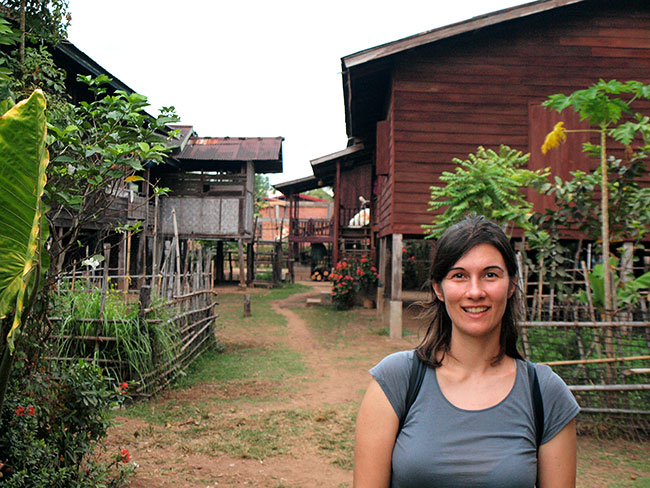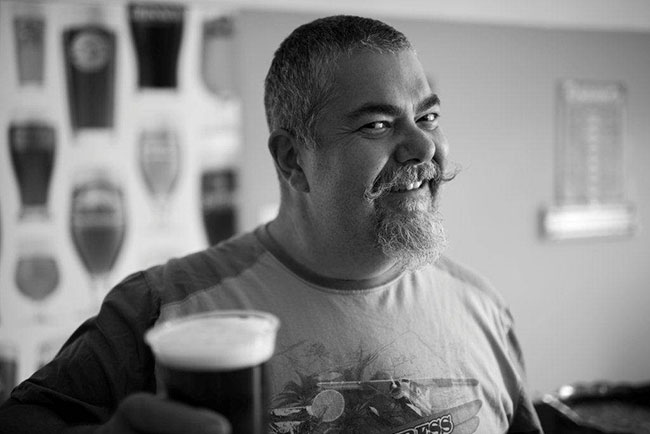
Features
Management
Operations
Two-timing therapists
Two-timers get a bad rap in the dating world, but, when it comes to savvy career moves, two jobs can make financial sense. A physically demanding position can be balanced by a creative pursuit.
April 10, 2015 By Jules Torti
Two-timers get a bad rap in the dating world, but, when it comes to savvy career moves, two jobs can make financial sense. A physically demanding position can be balanced by a creative pursuit.
Two-timing massage therapists can benefit from a non-traditional schedule and a handsome hourly rate. A job outside the industry might secure a pension, a RSP match program, extended health-care benefits, vacation pay and a less physical workload. Sometimes, one can even achieve the semblance of a normal life with a nine-to-five workday, if so desired.
Second career
Arielle Berger was a massage therapist for 14 years before she finally resigned from the CMTO this October. She had worked full-time from the onset before shifting to part-time status as she landed a stream of freelance editor contracts. In 2010, she secured a full-time editing gig but continued to integrate massage appointments when she could. By her 13th year, Berger decided to go inactive to address her second career ambitions with more dedication. She is now a full-time editor for a small foundation.
She’d earned a degree in English Lit, but the academia world became less than enchanting midway through her university experience. Upon graduation, her ideal was to move as far away as possible from academia. The practicality of massage therapy and helping people directly appealed immensely to her. She enrolled in an anatomy correspondence course and was surprised at her interest level.
“Three to four years in as a MT, I knew I couldn’t practice in the long-term, though I did end up appreciating that I could fall back on it part-time as I started to pursue another career. I was exhausted both physically and mentally – physically because when I tried to use techniques to save my hands (on clients requesting more pressure), I didn’t like how it felt. I hate elbow work, both giving it and receiving it, so my hands always took the brunt.”
Berger’s response was a familiar seesaw. She loved the nature of the work but felt the odd juxtaposition of being mentally exhausted and disappointed to not being able to use her brain enough. Attempts at additional courses and body mechanics awareness never fully sparked the enthusiasm to specialize in other hands-saving techniques.
Berger’s pursuits in the publishing world ignited her motivation, despite similar setbacks in establishing a massage career. She admits that it always felt like a struggle with massage to achieve financial stability. “I just couldn’t work enough hours.” It took her four years to land a full-time gig in publishing, which was frustrating but easier to accept knowing she was on a more logical and beneficial path.
The stimulation of “challenging research, interacting with colleagues, writers and a whole whack of publishing people on so many different levels, the opportunity to improve the arc of a story involves so many facets of myself that MT didn’t provide. And, I actually love the routine hours that I thought I would hate.”
Berger’s resignation from the CMTO was as carefully crafted as her progression into full time editing. “At first I was taking publishing courses and getting wee proofreading jobs. I liked the balance of working in two different careers and that I could give massage therapy my ‘all’ because I wasn’t as exhausted. But, that balance eventually tipped. I felt so much more ‘whole’ working with language and more satisfied by the work.”
In the beginning, Berger still tried to bounce between both. As much as she loved her clients, working during the day editing and massaging evenings and weekends didn’t make rational sense.
To be or not to be
I met Mary Owen at the West Coast College of Massage Therapy in New Westminster, B.C. We were both Ontario expats and shared instant common ground, industry agitations and, more so, endless travel stories.
 |
|
| Mary Owen
|
Owen graduated in 2008 from the West Coast College and had been practicing full-time until 2013. Her resume is diverse, from hot hotel spas to private clinics and a rehab hospital stint. She is now a casual at a chiropractic clinic (where she worked full-time for four years) and finishing a human resources internship at the University Health Network at Toronto General/Western Hospital in the Volunteer Resources Department.
In January 2014, Owen went back to post grad school for HR for eight months. Her work as a MT has become occasional since.
“There were only so many clients I could see in a day or week and I found that I was decreasing the maximum number of people I could treat every year. Which also decreases your income,” she says.
She’s noticed a welcome decrease in the amount of aches and pains she experiences since leaving massage full-time. I know Owen is a ninja about her yoga, stretching and strengthening routine, so, this change wasn’t a matter of self-care neglect.
Owen also admits to severe disenchantment even in her “short career.” Constantly educating clients on home care and injury management became exhausting for her. Her frustration level was mounting with so many clients just “falling on the table saying ‘fix me.’ It’s an expectation one can never live up to.”
The business aspect of the profession and wrestling with insurance companies, benefits and receipts “deflates the true spirit of health” and led Owen to look within. She tried to change her approach to practice, education techniques and set new boundaries to avoid complete career discouragement.
Seeking greater stimulus, activity and variety, Owen knew she would thrive in the slight chaos of a hospital setting. She never felt the rush as a MT. She wonders if added control (owning her own clinic) would have changed this element, but living in Toronto and trying to start a business didn’t appeal to her.
In Owen’s hospital internship, she realized how person-centric she is. This interaction is as vital to her as is collaborating with the community. “Massage can be very quiet and solitary.” She deals with hundreds of volunteers on a weekly basis, develops training programs and takes on special projects.
“I’m realizing that I like using my mind to work rather than use my body. A five- to six-hour day of massage feels so much longer than an eight- to nine-hour day at the hospital for me. I’m so busy at the hospital that I don’t have time to look at the clock, which is something I’m constantly doing as a massage therapist.”
“Having a steady income is nice, but now I also know that my income can grow through wage increases and promotions.” She plans to keep her MT licence for as long as it makes sense. It will serve as a fall back if she finds herself between contracts. “It’s also a great profession to be in while going back to school since you can make a day’s worth of income in just three hours.”
Curiously, when I poke deeper about her motives to pursue a second career, Owen confessed that she stalled for a long period due to guilt of leaving the industry.
“I deeply care and believe in massage and I sometimes feel like I have turned my back on it.” In time, she was able to see that her two-timing pursuit didn’t mean that she couldn’t massage or that her opinion of it had changed. “I will always and forever be an alternative medicine believer at heart.”
Staying power
Stefan Shuster has been in practice since November 1988. He is a fan favourite at the Langdon Hall Country Hotel and Spa in Blair, Ont., where his Santa-like laugh shakes up the traditional hush and whispers of the spa setting. Gregarious and approachable with a full arsenal of one-liners, it’s easy to see how Shuster slides from his role as a massage therapist at a five-diamond hotel to his own uptown Waterloo business – the idyllic Hillcrest B&B, which he runs with his wife, Wendy.
 |
|
| Stefan Shuster
|
It doesn’t stop there. In between Thai stem and hot stone massages, Shuster is running grocery lists in his head. He’s a part time chef and spouts off appetizer ideas like oysters with vodka and Sriracha like poetry. If you are intrigued by the fantasy of owning your own pastoral bed and breakfast, Shuster and Wendy also run a B&B Boot Camp. The one-and-a-half-day course is offered through Conestoga College but held at their Hillcrest headquarters.
When Shuster first met Wendy, she had a bakeshop and full-service catering business (which segued into Shuster’s sideline work as a part-time chef). Shuster’s massage practice was in the same building as Wendy’s, which surreptitiously increased her cookie sales.
For eight years before the Hillcrest B&B opened, Shuster was clocking in solid 17-hour days, six days a week. Baking started at 2 a.m. followed by a heavy massage schedule from 9 to 7 p.m. Realizing that their work/life balance was out of whack, the couple decided to close the bakeshop and Shuster’s private practice. He took a position at Langdon Hall and they soon found the perfect house to run a B&B.
Cooking became a natural extension of owning a B&B, “life was just going by,” Shuster reflected. The social aspect of owning the Hillcrest and donning kitchen whites satisfies him in a way that differs from massage therapy.
Langdon and the Hillcrest work well for his lifestyle.
Shuster advises that if a massage therapist is looking to become a two-timer, it’s not and shouldn’t be for monetary gain. “Keeping your mind fresh and learning something new – even pursuing an odd hobby will only make you smile while busy massaging. The energy and passion you convey will be passed on to your clients.”
Jules Torti has been a RMT since 1999 and a freelance writer since age six. In between massage engagements, she travels to Africa to be with chimpanzees and writes about her zany travels for Matador Network.
Print this page